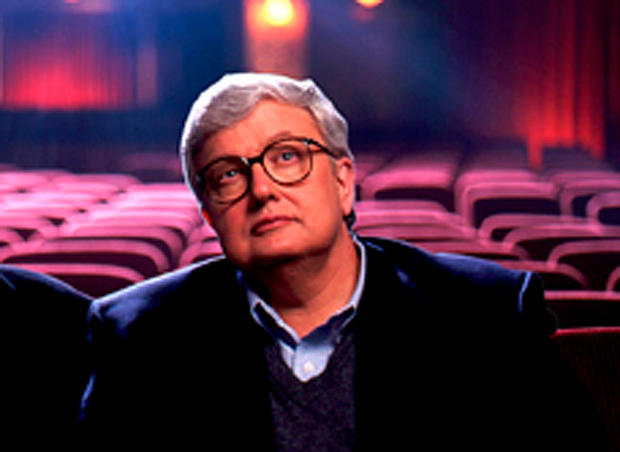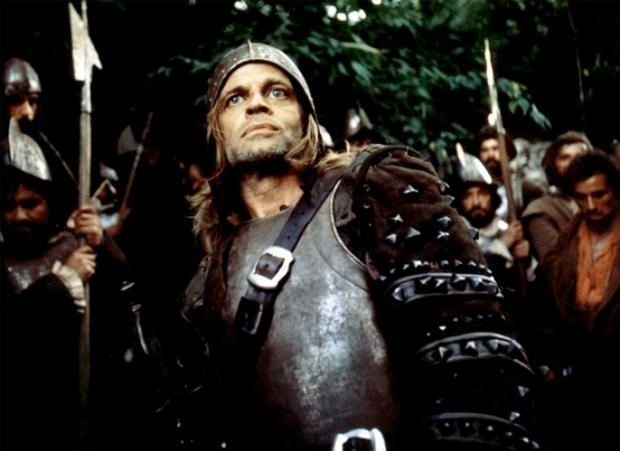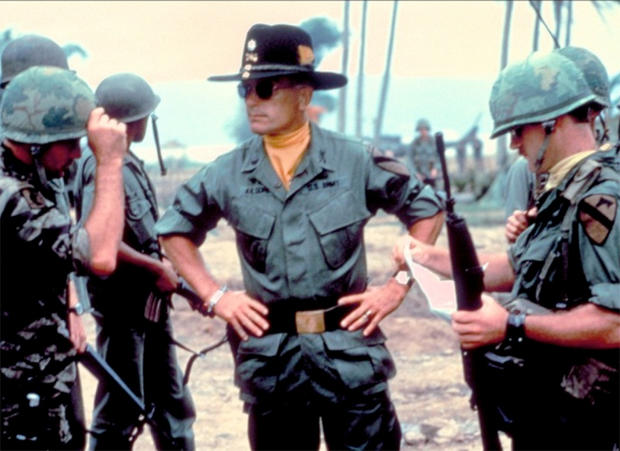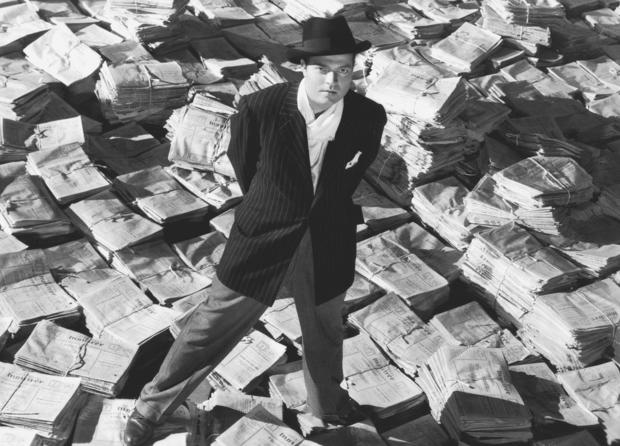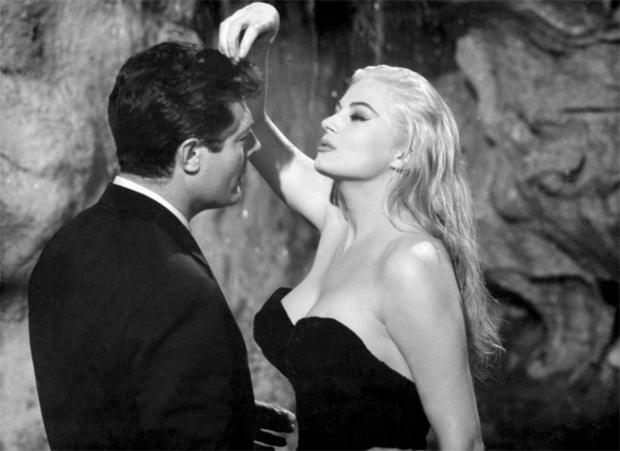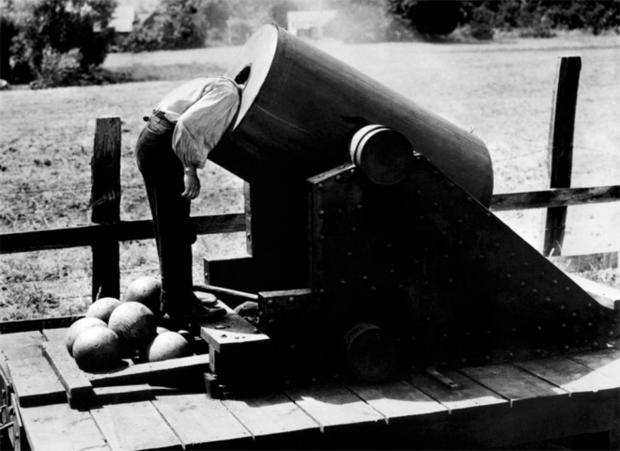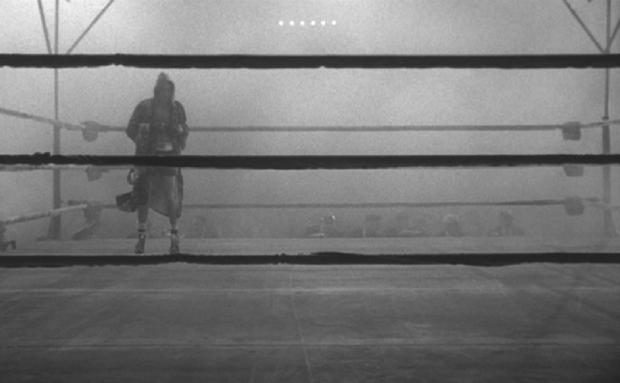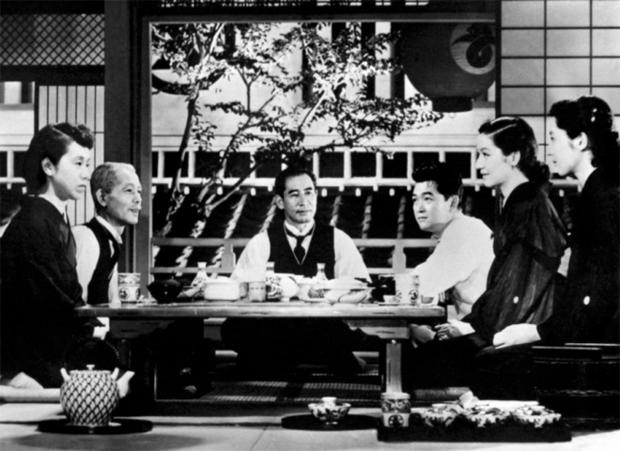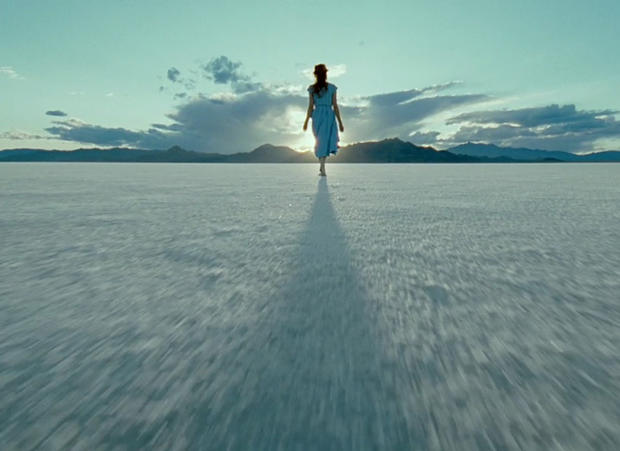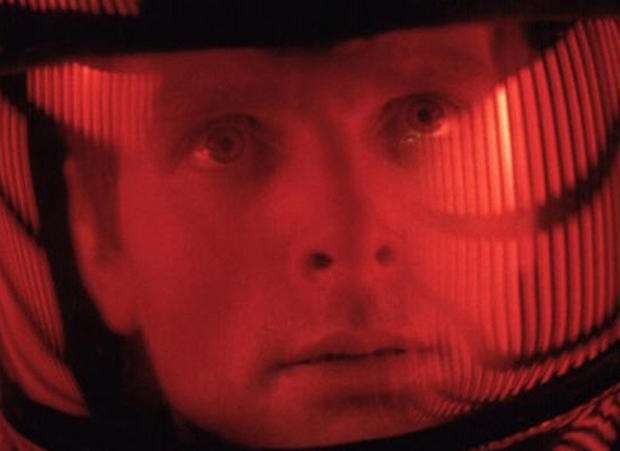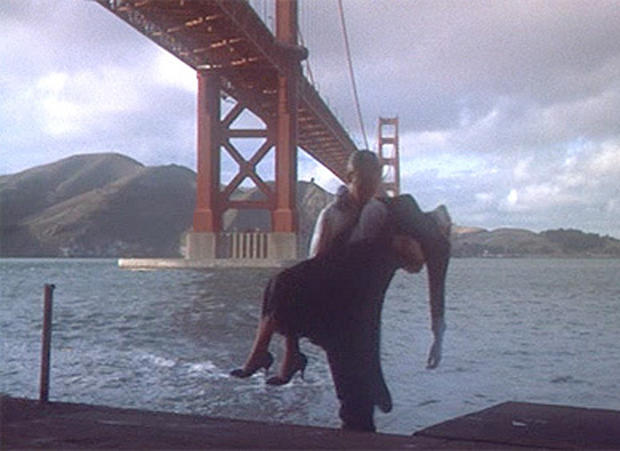Roger Ebert's 10 greatest films of all time
Updated April 8 1:53 p.m. ET
(CBS News) There were few more passionate advocates for films as art than Chicago Sun-Times critic Roger Ebert, who died Thursday at the age of 70 after a long battle against cancer.
Despite the seeming limitations of serving as the co-host of a syndicated TV review show and plying his trade in the Midwest (where distribution of independent or foreign-language films can be spotty at best), Ebert helped shine a light on deserving films to millions. He was an early supporter of such noted directors as Martin Scorsese, Spike Lee and Werner Herzog, and his published collections of film criticism offered a bracing celebration of cinematic innovation and emotional clarity (and, in the case of "I Hated, Hated, HATED This Movie," a piercing cry against mediocrity).
- Roger Ebert, famed movie critic, dies at 70
- Mourners remember famed film critic Roger Ebert at Chicago funeral
- David Edelstein: "Thumbs up" for Roger Ebert
- Richard Roeper: Working with Ebert "like winning the movie lottery"
- Roger Ebert remembered by Hollywood
In 2012 the British Film Institute's Sight & Sound magazine polled international critics to choose their 10 favorite films, as it has every decade since 1952. Ebert once again offered his selection, despite his qualms about reducing his passion for the medium into a tidy Top-10 list. ("Lists are ridiculous, but if you're going to vote, you have to play the game," he relented.) Films which he'd previously included in his S&S polls, such as "Notorious" and the documentary "Gates of Heaven," he considered thusly canonized, and was willing to cut loose, to welcome new entries into the pantheon.
The following, in alphabetical order, are Ebert's 2012 choices. Click through this gallery by the tabs up top to read excerpts from his published reviews.
Roger Ebert's 10 greatest films of all time
"Aguirre, Wrath of God" (1972), directed by Werner Herzog
"Werner Herzog's 'Aguirre, the Wrath of God' is one of the great haunting visions of the cinema. It tells the story of the doomed expedition of the conquistador Gonzalo Pizarro, who in 1560 and 1561 led a body of men into the Peruvian rain forest, lured by stories of the lost city. . . .
"The film is not driven by dialogue . . . or even by the characters, except for Aguirre, whose personality is created as much by [Klaus] Kinski's face and body as by words. What Herzog sees in the story, I think, is what he finds in many of his films: Men haunted by a vision of great achievement, who commit the sin of pride by daring to reach for it, and are crushed by an implacable universe."
Roger Ebert's 10 greatest films of all time
"Apocalypse Now" (1979) directed by Francis Ford Coppola
Ebert wrote in 1999, "[S]een again now at a distance of 20 years, 'Apocalypse Now' is more clearly than ever one of the key films of the century. Most films are lucky to contain a single great sequence. 'Apocalypse Now' strings together one after another, with the river journey as the connecting link. The best is the helicopter attack on a Vietnam village, led by Col. Kilgore (Robert Duvall), whose choppers use loudspeakers at top volume to play Wagner's 'Ride of the Valkyries' as they swoop down on a yard full of schoolchildren. Duvall won an Oscar nomination for his performance and its unforgettable line, 'I love the smell of napalm in the morning.' His emptiness is frightening ..."
Roger Ebert's 10 greatest films of all time
"Citizen Kane" (1941) directed by Orson Welles
" 'Rosebud' is the emblem of the security, hope and innocence of childhood, which a man can spend his life seeking to regain. It is the green light at the end of Gatsby's pier; the leopard atop Kilimanjaro, seeking nobody knows what; the bone tossed into the air in '2001.' It is that yearning after transience that adults learn to suppress. 'Maybe Rosebud was something he couldn't get, or something he lost,' says Thompson, the reporter assigned to the puzzle of Kane's dying word. 'Anyway, it wouldn't have explained anything.' True, it explains nothing, but it is remarkably satisfactory as a demonstration that nothing can be explained.
"'Citizen Kane' likes playful paradoxes like that. Its surface is as much fun as any movie ever made. Its depths surpass understanding. I have analyzed it a shot at a time with more than 30 groups, and together we have seen, I believe, pretty much everything that is there on the screen. The more clearly I can see its physical manifestation, the more I am stirred by its mystery."
Roger Ebert's 10 greatest films of all time
"La Dolce Vita" (1960) directed by Federico Fellini
"Movies do not change, but their viewers do. When I saw 'La Dolce Vita'' in 1960, I was an adolescent for whom 'the sweet life'' represented everything I dreamed of: sin, exotic European glamour, the weary romance of the cynical newspaperman. When I saw it again, around 1970, I was living in a version of Marcello's world; Chicago's North Avenue was not the Via Veneto, but at 3 a.m. the denizens were just as colorful, and I was about Marcello's age.
"When I saw the movie around 1980, Marcello was the same age, but I was 10 years older, had stopped drinking, and saw him not as a role model but as a victim, condemned to an endless search for happiness that could never be found, not that way. By 1991, when I analyzed the film a frame at a time at the University of Colorado, Marcello seemed younger still, and while I had once admired and then criticized him, now I pitied and loved him. And when I saw the movie right after Mastroianni died, I thought that Fellini and Marcello had taken a moment of discovery and made it immortal. There may be no such thing as the sweet life. But it is necessary to find that out for yourself."
Roger Ebert's 10 greatest films of all time
"The General" (1927) directed by Buster Keaton
"Buster Keaton was not the Great Stone Face so much as a man who kept his composure in the center of chaos. Other silent actors might mug to get a point across, but Keaton remained observant and collected. That's one reason his best movies have aged better than those of his rival, Charlie Chaplin. He seems like a modern visitor to the world of the silent clowns. ...
"Today I look at Keaton's works more often than any other silent films. They have such a graceful perfection, such a meshing of story, character and episode, that they unfold like music. Although they're filled with gags, you can rarely catch Keaton writing a scene around a gag; instead, the laughs emerge from the situation; he was 'the still, small, suffering center of the hysteria of slapstick,' wrote the critic Karen Jaehne. And in an age when special effects were in their infancy, and a 'stunt' often meant actually doing on the screen what you appeared to be doing, Keaton was ambitious and fearless. He had a house collapse around him. He swung over a waterfall to rescue a woman he loved. He fell from trains. And always he did it in character, playing a solemn and thoughtful man who trusts in his own ingenuity."
Roger Ebert's 10 greatest films of all time
"Raging Bull" (1980) directed by Martin Scorsese
" 'Raging Bull' is not a film about boxing but about a man with paralyzing jealousy and sexual insecurity, for whom being punished in the ring serves as confession, penance and absolution. It is no accident that the screenplay never concerns itself with fight strategy. For Jake LaMotta, what happens during a fight is controlled not by tactics but by his fears and drives.
"Consumed by rage after his wife, Vickie, unwisely describes one of his opponents as 'good-looking,' he pounds the man's face into a pulp, and in the audience a Mafia boss leans over to his lieutenant and observes, 'He ain't pretty no more.' After the punishment has been delivered, Jake (Robert De Niro) looks not at his opponent, but into the eyes of his wife (Cathy Moriarty), who gets the message. . . .
" 'Raging Bull' is the most painful and heartrending portrait of jealousy in the cinema -- an 'Othello' for our times. It's the best film I've seen about the low self-esteem, sexual inadequacy and fear that lead some men to abuse women. Boxing is the arena, not the subject. LaMotta was famous for refusing to be knocked down in the ring. There are scenes where he stands passively, his hands at his side, allowing himself to be hammered. We sense why he didn't go down. He hurt too much to allow the pain to stop."
Roger Ebert's 10 greatest films of all time
"Tokyo Story" (1953) directed by Yasujiro Ozu
"It is clear that 'Tokyo Story' was one of the unacknowledged masterpieces of the early-1950s Japanese cinema, and that Ozu has more than a little in common with that other great director, Kenji Mizoguchi ('Ugetsu'). Both of them use their cameras as largely impassive, honest observers. Both seem reluctant to manipulate the real time in which their scenes are acted; Ozu uses very restrained editing, and Mizoguchi often shoots scenes in unbroken takes.
"This objectivity creates an interesting effect; because we are not being manipulated by devices of editing and camera movement, we do not at first have any very strong reaction to 'Tokyo Story.' We miss the visual cues and shorthand used by Western directors to lead us by the nose. With Ozu, it's as if the characters are living their lives unaware that a movie is being shot. And so we get to know them gradually, begin to look for personal characteristics and to understand the implications of little gestures and quiet remarks.
" 'Tokyo Story' moves quite slowly by our Western standards, and requires more patience at first than some moviegoers may be willing to supply. Its effect is cumulative, however; the pace comes to seem perfectly suited to the material. And there are scenes that will be hard to forget: The mother and father separately thanking the daughter-in-law for her kindness; the father's laborious drunken odyssey through a night of barroom nostalgia; and his reaction when he learns that his wife will probably die."
Roger Ebert's 10 greatest films of all time
"The Tree of Life" (2011) directed by Terrence Malick
"Terrence Malick's 'The Tree of Life' is a film of vast ambition and deep humility, attempting no less than to encompass all of existence and view it through the prism of a few infinitesimal lives. The only other film I've seen with this boldness of vision is Kubrick's '2001: A Space Odyssey,' and it lacked Malick's fierce evocation of human feeling. There were once several directors who yearned to make no less than a masterpiece, but now there are only a few. Malick has stayed true to that hope ever since his first feature in 1973.
"I don't know when a film has connected more immediately with my own personal experience. In uncanny ways, the central events of 'The Tree of Life' reflect a time and place I lived in, and the boys in it are me. If I set out to make an autobiographical film, and if I had Malick's gift, it would look so much like this."
Roger Ebert's 10 greatest films of all time
"2001: A Space Odyssey" (1968) directed by Stanley Kubrick
"The genius is not in how much Stanley Kubrick does in '2001: A Space Odyssey,' but in how little. This is the work of an artist so sublimely confident that he doesn't include a single shot simply to keep our attention. He reduces each scene to its essence, and leaves it on screen long enough for us to contemplate it, to inhabit it in our imaginations. Alone among science-fiction movies, '2001' is not concerned with thrilling us, but with inspiring our awe. ...
"The film did not provide the clear narrative and easy entertainment cues the audience expected. The closing sequences, with the astronaut inexplicably finding himself in a bedroom somewhere beyond Jupiter, were baffling. The overnight Hollywood judgment was that Kubrick had become derailed, that in his obsession with effects and set pieces, he had failed to make a movie.
"What he had actually done was make a philosophical statement about man's place in the universe, using images as those before him had used words, music or prayer. And he had made it in a way that invited us to contemplate it -- not to experience it vicariously as entertainment, as we might in a good conventional science-fiction film, but to stand outside it as a philosopher might, and think about it."
Roger Ebert's 10 greatest films of all time
"Vertigo" (1958) directed by Alfred Hitchcock
" 'Vertigo,' which is one of the two or three best films Hitchcock ever made, is the most confessional, dealing directly with the themes that controlled his art. It is *about* how Hitchcock used, feared and tried to control women. He is represented by Scottie (James Stewart), a man with physical and mental weaknesses (back problems, fear of heights), who falls obsessively in love with the image of a woman -- and not any woman, but the quintessential Hitchcock woman. When he cannot have her, he finds another woman and tries to mold her, dress her, train her, change her makeup and her hair, until she looks like the woman he desires. He cares nothing about the clay he is shaping; he will gladly sacrifice her on the altar of his dreams."
For more on Roger Ebert:
- rogerebert.com
- "Life Itself: A Memoir by Roger Ebert (Grand Central)
